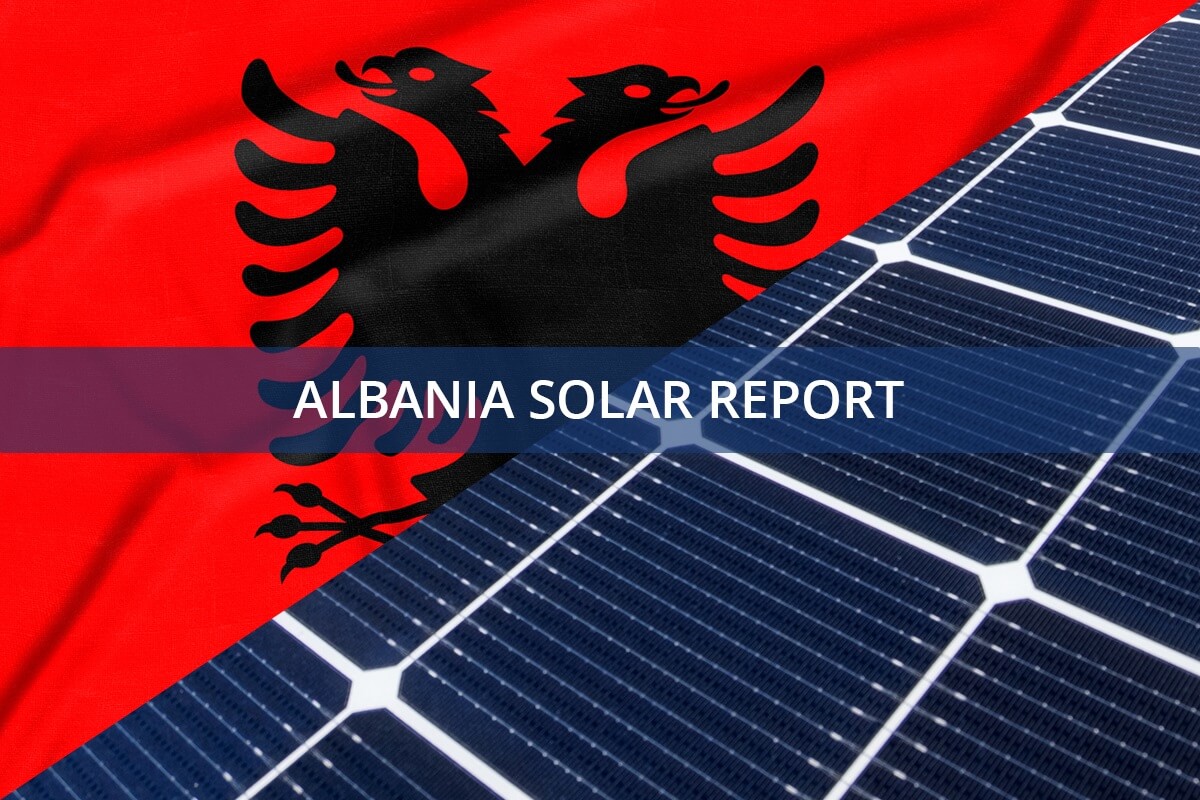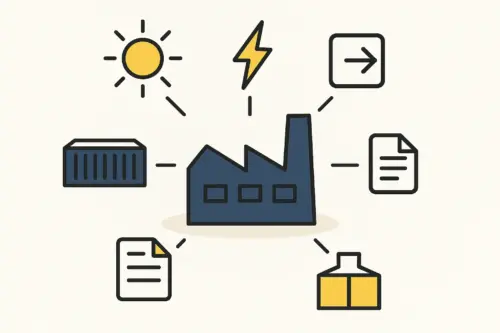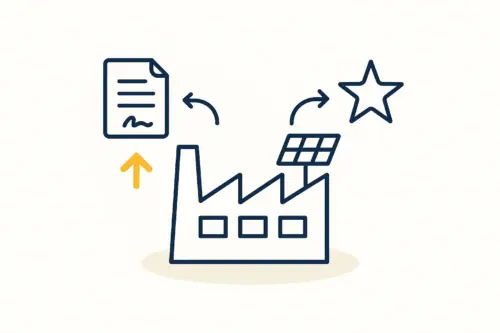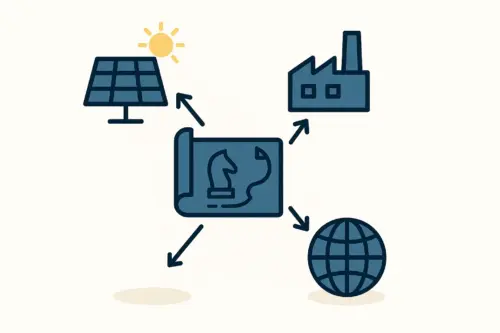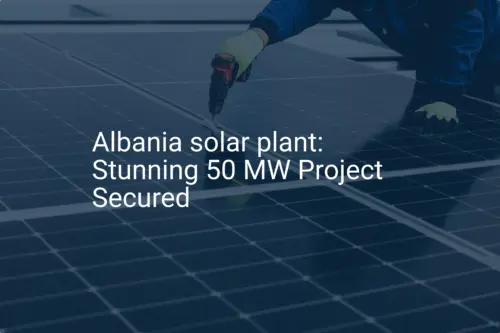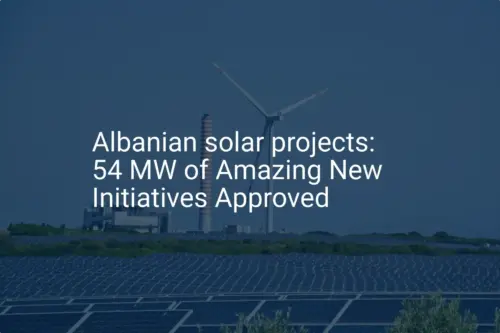Albania is fast becoming a real bright spot for solar energy investments, and honestly, it’s not hard to see why! With some pretty ambitious goals for renewable energy and laws genuinely designed to support growth, the country is practically buzzing with potential. Now, while many folks are looking at developing solar farms (and that’s great!), there’s a truly strategic and, dare I say, exciting opportunity that deserves a closer look: setting up your very own solar panel production facility, right here on Albanian soil.
So, if you’re an entrepreneur with a vision, an investor looking for the next big thing, or an established manufacturer keen to tap into this expanding market, getting your head around Albania’s regulatory world and how to secure the right permits is absolutely key. Think of this guide as your friendly, knowledgeable co-pilot through the legal landscape. We genuinely want to help you move forward with confidence, making sure everything is buttoned-up, compliant, and risks are managed, as you embark on your solar manufacturing adventure in Albania.
As you explore this exciting prospect, consider this guide your foundational step. For an even deeper dive into market specifics, we can’t recommend enough checking out our comprehensive Solar Manufacturing Opportunities in Albania: A PVknowhow.com Report.
Table of Contents
The Legal & Regulatory Framework: Powering Your Solar Ambitions
You know, Albania’s dedication to renewable energy isn’t just talk; it’s backed by a solid legal framework, one that’s been carefully shaped by aligning with EU directives and the nation’s own forward-thinking ambitions. This really does create a supportive and encouraging environment for ventures just like yours.
A Quick Look at Albania’s Energy Policy
Albania’s National Renewable Energy Action Plan (NREAP) paints a very clear picture: the country is aiming for at least 54.4% of its gross final energy consumption to come from renewable sources by 2030. That’s a bold target, no doubt, and it truly highlights just how important solar energy is in their national strategy. The government’s whole approach is geared towards attracting investment, boosting energy security, and championing sustainable development – all fantastic news if you’re mulling over a solar manufacturing plant.
Let’s Dive Deeper: Law no. 24/2023 “On the Promotion of the Use of Energy from Renewable Sources”
Passed back in April 2023, Law no. 24/2023 is what we’d call a real game-changer for Albania’s renewable energy scene. It effectively replaced the older Law no. 7/2017 and brought the country’s rules much more in line with the EU’s Renewable Energy Directive (RED II) 2018/2001. If you’re seriously thinking about producing solar panels in Albania, this law is definitely one you’ll want to get cozy with.
So, what does this actually mean for solar tech and manufacturing on the ground? Here are some of the key takeaways we think you’ll find interesting:
- Broader Horizons: The law now clearly embraces a whole host of renewable energy sources – solar, wind, and other innovative technologies are all very much in the picture. This is quite a significant shift from the past, which, let’s be honest, often leaned more heavily on hydropower.
- Support to Get You Started: It introduces some genuinely helpful support schemes, like Contracts for Difference (CfD), which are awarded through open, competitive auctions. Now, while these are mainly for energy producers, the increased demand for panels they inevitably create is a direct, positive ripple effect for local manufacturers like you. Keeping an eye on the pipeline of approved projects (for instance, the recent green light for a hefty 148.5MW of solar projects) can really help you fine-tune your manufacturing strategy.
- Proof of Green Energy (Guarantees of Origin – GOs): The law also sets up a system for these GOs. Essentially, these certificates confirm that energy comes from renewable sources, which could be incredibly useful if you’re planning to power your factory with green energy, or if your clients place a high value on that (and many increasingly do!).
- Priority Lane for Renewables on the Grid: Renewable energy producers get priority access to the grid. While this might not seem to directly apply to your manufacturing plant, it’s another strong signal of the government’s commitment to the entire solar value chain – a good sign for everyone involved.
As the legal eagles over at firms like KPMG and CEE Legal Matters have pointed out, this new law is all about creating a more transparent, predictable, and welcoming environment for investment in renewable energy projects. That’s music to our ears!
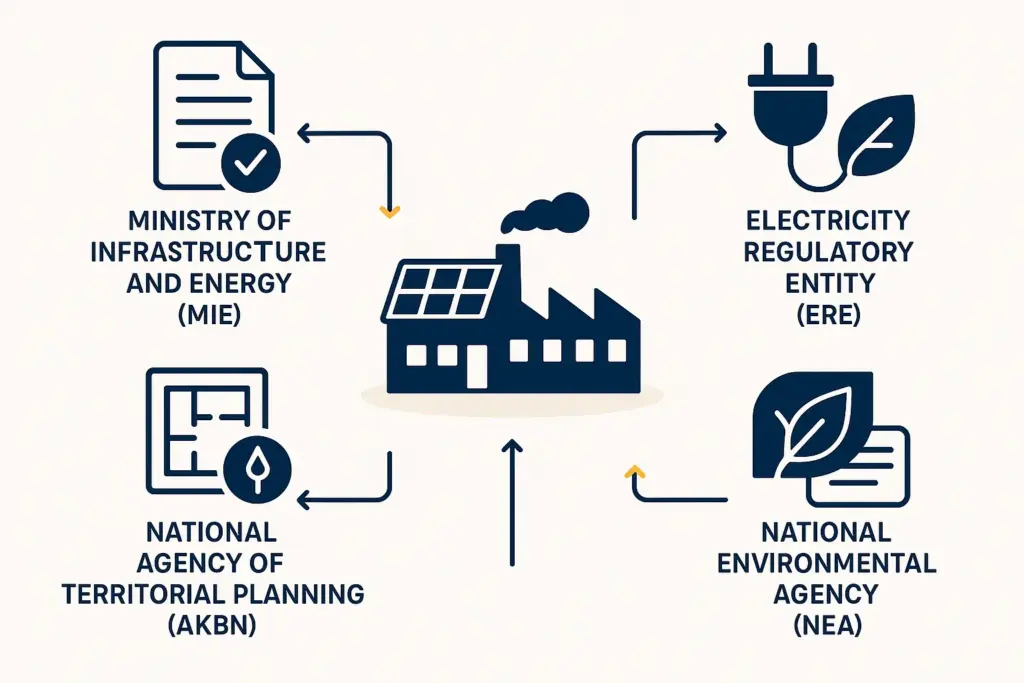
Who You’ll Be Talking To: Key Regulatory Bodies
Getting your solar venture off the ground in Albania means you’ll likely be having conversations with a few key organizations. It’s good to know who’s who in the zoo:
- Ministry of Infrastructure and Energy (MIE): Think of these folks as the main architects. This is the government department steering energy policy, mapping out the national strategy, and making sure those renewable energy targets are actually met.
- Energy Regulatory Entity (ERE): The ERE is an independent public body that keeps the energy sector in check – a bit like a referee. They handle things like licensing for energy activities (which could include energy your factory generates for its own use), setting tariffs, and ensuring the market is open, fair, and competitive. They’ve been very active in licensing solar projects, which is a good sign.
- National Agency for Natural Resources (AKBN): AKBN is involved in managing the country’s natural resources. Depending on your factory setup, you might connect with them for permits or concessions related to land use or perhaps even sourcing certain raw materials, though the latter is less common for panel assembly.
- Agency for Energy Efficiency (AEE): These are the champions of saving energy. They promote energy-saving measures and can be a fantastic resource if you’re looking to make your factory as energy-efficient as possible (which, let’s face it, is always a smart move).
- Environmental Agencies: The National Environmental Agency (NEA) and its regional counterparts are your go-to for all things environmental. They handle environmental permits and make sure you’re meeting all the necessary standards, including the crucial step of conducting Environmental Impact Assessments (EIAs).
Your Roadmap to Permitting a Solar Panel Production Facility
Okay, let’s talk about the journey. Setting up a solar panel factory has its own specific permitting pathway, a bit different from what’s needed for, say, a solar farm that’s just generating power. Let’s walk through the main phases together.
Phase 1: Getting Your Business Set Up & Preliminary Green Lights
- Registering Your Company: First things first, every business operating in Albania needs to get registered with the National Business Center (Qendra Kombëtare e Biznesit – QKB). It’s a foundational step. Crucially, make sure the ‘object of activity’ listed in your company’s founding documents clearly states that you’ll be manufacturing, specifically solar panels or related components. Details matter here!
- Finding and Securing Your Land: Next up, you’ll need to identify and secure a suitable spot for your factory. This could mean buying or leasing industrial land. Always, and I mean always, check the local municipal zoning regulations – you might need land conversion permits if the site isn’t already zoned for industrial use, and that can add time.
- Initial Environmental Check-up: Before you go making any major financial commitments, it’s incredibly wise (and sometimes a formal requirement) to do an initial environmental assessment or screening. This can help you spot any potential red flags early on and give you a clearer picture of what a full Environmental Impact Assessment might entail down the line.
Phase 2: Core Licenses & Permits for Manufacturing
- Your Manufacturing License: Now, this isn’t a license to generate electricity for sale to the grid, but a specific industrial or manufacturing license. It basically confirms that your facility meets all the necessary standards for industrial operations. The exact type of license and who issues it will likely depend on the size and specific nature of your production.
- Development/Construction Permit: Once your land is secured and your factory designs are all drawn up and ready to go, you’ll need a construction permit from the relevant local or national authorities. This is the green light before any building can actually start, and it involves submitting detailed architectural and engineering plans.
- The All-Important Environmental Permit: This is a big one. This critical permit comes after you’ve successfully completed an Environmental Impact Assessment (EIA). It will clearly lay out the environmental conditions your factory must operate under (we’ll touch more on this in a moment).
- Getting Connected (Utilities): Pretty straightforward but essential: you’ll need agreements in place for all your essential utilities like electricity (to power your factory, of course), a reliable water supply, and systems for wastewater and industrial waste disposal.
- Other Sector-Specific Permits: Depending on the nitty-gritty of your specific manufacturing processes, the materials you use, or any related activities (like storing certain chemicals or managing large-scale logistics), you might find you need additional permits for things like health and safety, fire safety, or other operational aspects. It’s always best to clarify this early.
Applying for these permits usually means submitting a fair bit of documentation to the ERE (especially for any energy-related aspects, like if your factory generates its own power or has specific energy use needs), various relevant ministries, and local authorities. Just a heads-up, timelines can vary, so preparing thorough and accurate documentation right from the very beginning is a really smart move. Trust me on this one!
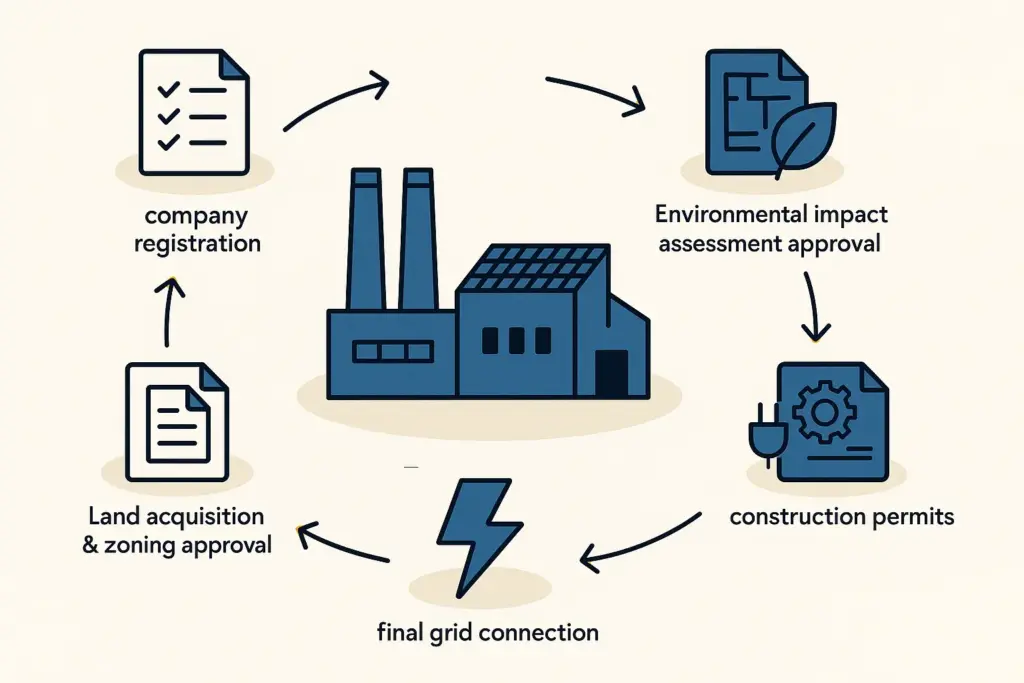
Meeting Environmental Standards & Social Governance (ESG) Needs
Let’s be clear: operating an industrial facility in Albania, or anywhere for that matter, means that strong environmental and social standards aren’t just nice-to-haves; they’re absolutely essential. This is non-negotiable for long-term success and a good reputation.
Understanding the Environmental Impact Assessment (EIA)
An Environmental Impact Assessment (EIA) is pretty much a must-do for any significant industrial project, and that definitely includes a solar panel manufacturing plant. Think of it as a really deep dive into the potential environmental effects of your proposed factory. It will look at things like:
- Air and water emissions (what’s going out?)
- How you’ll manage waste (what happens to the leftovers?)
- Noise levels (will you be a noisy neighbor?)
- Impact on local plants and wildlife (what’s the effect on the local ecosystem?)
- Your use of natural resources (how much water, energy, etc. will you need?)
The EIA report also needs to clearly outline how you plan to lessen or mitigate any negative impacts you identify. Getting this EIA approved by the environmental authorities is a key hurdle to clear before you can get your hands on that crucial Environmental Permit.
Specific Albanian Environmental Laws for Manufacturing
Beyond the general EIA process, as a solar panel manufacturer, you’ll need to be acutely aware of and comply with specific national laws that cover areas like:
- Waste Management: This includes detailed rules for industrial waste and, importantly, hazardous waste (think about the chemicals sometimes used in cell production or panel assembly). You might also need to start thinking about Waste Electrical and Electronic Equipment (WEEE) regulations if end-of-life panel recycling or take-back schemes become part of your operation down the line.
- Controlling Air and Water Pollution: There are strict limits on pollutants released into the air and water. This means having the right abatement technologies (like filters and treatment systems) and diligent monitoring systems in place from day one.
- Managing Chemicals Safely: If your manufacturing process involves chemicals (like solvents, etchants, or encapsulants – common in the PV world), there are specific regulations for their safe storage, handling, and, of course, disposal.
It’s also worth noting – and this is a fairly new development – that starting from 2026, new buildings and those undergoing major renovations in Albania will need to meet zero-emission standards and use renewable energy sources, especially solar. This will almost certainly apply to the construction of new manufacturing facilities, so it’s really good to have this on your radar and plan ahead!
The People Side: Social Aspects
Compliance doesn’t just stop at the environment; it absolutely extends to how you treat your people:
- Labor Laws: You’ll naturally need to adhere to all Albanian labor laws regarding working conditions, fair wages, working hours, and employee rights. This is just good business.
- Health and Safety Standards (OHSA): Keeping your workers safe is, without a doubt, paramount and a serious legal requirement. Implementing robust occupational health and safety measures isn’t just about ticking boxes; it’s about genuinely caring for your team.
Grid Connection & Infrastructure for Your Facility
Even though your factory’s main job isn’t to generate power for the grid, it will certainly have significant energy needs from the grid.
- Securing a Reliable Power Supply: A stable and sufficient electricity supply is absolutely vital for smooth operations. This means striking an agreement with the local distribution system operator (DSO). For very large facilities, you might even find yourself connecting directly with the transmission system operator (TSO), which is OST (Operatori i Sistemit të Transmetimit) in Albania. The good news is, Albania is actively working on upgrading its grid infrastructure, which is a positive trend.
- Generating Your Own Power On-site: Many factories, and it’s a smart move, find it beneficial to install their own renewable energy systems – think rooftop solar panels on the factory building itself. This can really help reduce operational costs and, of course, boost your green credentials. It’s definitely worth exploring policies for self-consumption and net-metering, if they apply to industrial consumers in your specific case.
- Grid Needs for Product Testing: Now, if your facility includes extensive testing of your manufactured panels, and this process involves feeding power (even temporarily) into a local grid segment, you might need to meet specific technical requirements and have clear agreements in place with the utility company. Something to keep in mind.
Incentives & Financial Support to Boost Your Solar Manufacturing Venture
Here’s some encouraging news: Albania is genuinely keen to attract foreign direct investment (FDI) and grow its industrial sector, and that can translate into good news for you.
- A Welcoming Investment Climate: The Albanian Investment Development Agency (AIDA) is a fantastic first port of call for any investor. They can provide a wealth of information on the general investment climate and any potential support that might be available.
- Specific Incentives for Manufacturing/Industrial Investments:
- Law on Strategic Investments: This is an interesting one. If your project is designated a “strategic investment” (and a solar panel factory contributing to green energy goals and job creation has a good shot), you could benefit from special, often fast-tracked, procedures and incentives. This might include help with permits, state support for necessary infrastructure, or even the use of public property under favorable terms.
- Tax Perks: Various tax incentives might well be on the table for new investments. We’re talking things like potential corporate income tax holidays or reductions for a certain period, and often exemptions from customs duties on imported machinery and equipment. Every little bit helps!
- Industrial Parks: Setting up shop in a designated industrial or economic zone could offer some extra benefits, like ready-to-use infrastructure and potentially smoother administrative procedures.
- Finding Finance: Beyond direct government incentives, don’t forget to look for financing from local commercial banks. Also, International Financial Institutions (IFIs) like the European Bank for Reconstruction and Development (EBRD) are quite active in Albania and often have a strong focus on supporting green economy projects. This could potentially include financing for manufacturing facilities that strengthen the renewable energy supply chain.
- Indirect Boost from Renewable Energy Generation Incentives: And remember, while incentives like Contracts for Difference (CfDs) are primarily aimed at energy producers, the increased demand for solar panels these schemes create means a healthier, more robust domestic market for local manufacturers like yourself. It’s a win-win.
It’s really, really important to do your homework thoroughly here and perhaps have a good chat with local legal and financial experts. They can help you uncover all the incentives and support mechanisms that could apply specifically to your project.
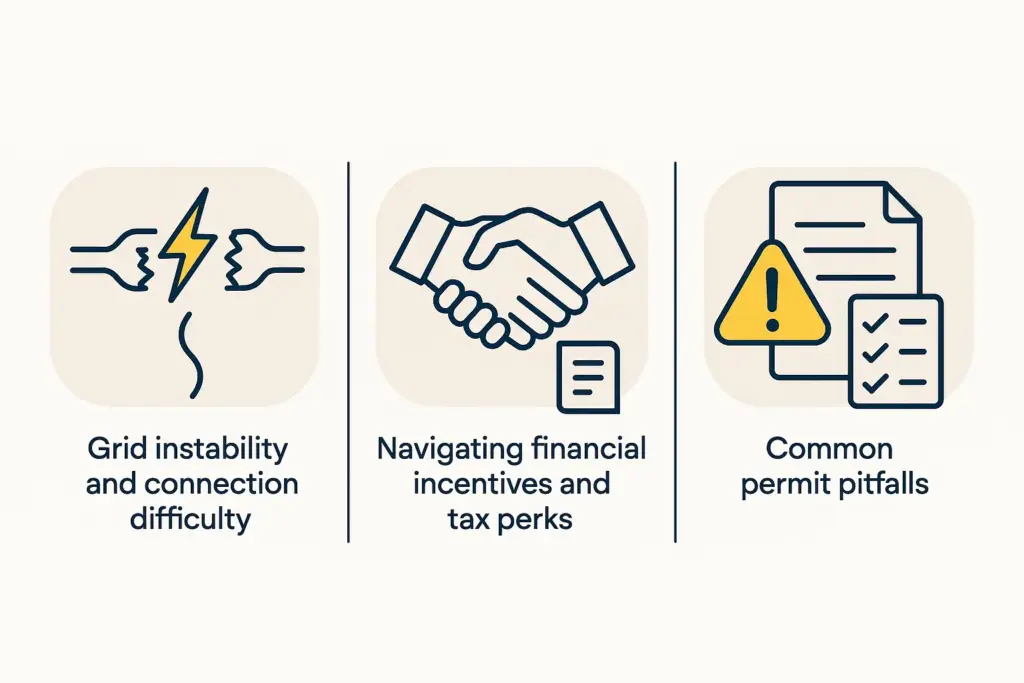
Navigating Challenges & Setting Yourself Up for Success
Let’s be realistic: while Albania offers some fantastic opportunities, setting up any new venture, anywhere, can come with its share of hurdles. You might encounter bureaucratic delays, or perhaps need a bit more clarity on specific rules for industries that are relatively new to the area. Here’s how you can pave the way for a smoother journey:
- Do Your Homework (Thoroughly!): I can’t stress this enough. Before committing significant resources, dive deep into legal, technical, and environmental due diligence. Understanding the landscape upfront can save you a world of headaches later on.
- Lean on Local Expertise: Partnering with local consultants, legal advisors, and engineers who really know the ins and outs of Albanian laws, local procedures, and the general business environment can be incredibly valuable. They speak the language (literally and figuratively!) and can help you navigate complexities you might not even foresee.
- Keep the Conversation Flowing: Maintain open, proactive, and respectful communication with all the relevant regulatory bodies. Building good relationships and ensuring clear understanding on both sides can make a huge difference.
- Make Compliance Your Priority: From day one, aim for full and transparent compliance with all legal, environmental, and social standards. Building your venture on a strong, ethical foundation is always, always the best approach for sustainable success.
Conclusion: Powering Albania’s Future, Together, with Local Manufacturing
So, there you have it. Establishing a solar panel production facility in Albania isn’t just a smart business move; it’s a genuinely strategic one. It aligns perfectly with the country’s inspiring renewable energy goals and gives you direct access to a growing regional market. By understanding and carefully navigating the regulatory framework, permitting processes, and compliance requirements we’ve talked about in this guide, you can confidently lay the groundwork for a truly thriving manufacturing venture.
Albania’s clear commitment to a greener tomorrow, combined with an ever-improving investment climate, truly makes a compelling case for local solar PV manufacturing. This kind of initiative doesn’t just help the country achieve greater energy independence and sustainable development; it also creates valuable jobs and fosters vital technological growth right here in Albania. It’s about building something lasting.
At PVknowhow.com, we’ve spent over two decades walking alongside businesses just like yours, through every single stage of building and operating solar factories all around the globe. We’re absolutely ready and thoroughly equipped to help you turn this Albanian opportunity into a brilliant reality. Whether you’re looking for turnkey production lines, in-depth business planning, or hands-on technical consulting, we bring the practical, real-world expertise you need right to the table.
Ready to launch your solar panel factory in Albania? Contact the PVknowhow.com experts today for personalized advice. Let’s build your success story together!
References
All references
- PVknowhow.com Reports and News (e.g.,
https://www.pvknowhow.com/solar-report/albania/,https://www.pvknowhow.com/news/albania-solar-projects-148-5mw-companies/) - KPMG: New Law on Promotion of the Use of Energy from Renewable Sources (
https://kpmg.com/al/en/home/insights/2023/05/new-law-on--promotion-of-the-use-of-energy-from-renewable-source.html) - CEE Legal Matters: Renewable Energy Albania 2023 (
https://ceelegalmatters.com/renewable-energy-2023/renewable-energy-albania-2023) - Energy Regulatory Entity (ERE) Albania – Law no. 24/2023 (
https://ere.gov.al/media/files/2024/01/31/Law_no._24_2023_On_the_promotion_of_the_use_of_energy_from_renewable_sources.pdf) - CMS Law: Expert Guide to Renewable Energy – Albania (
https://cms.law/en/int/expert-guides/cms-expert-guide-to-renewable-energy/albania) - Lexology: Albania: The New Law on Promoting the Use of Renewable Energy (
https://www.lexology.com/library/detail.aspx?g=0d026c83-e2b2-4bda-974b-3e9f899129e5) - UNESCAP & UNECE Reports on Albanian Energy (e.g.,
https://www.unescap.org/sites/default/d8files/2024-12/Energy%20efficiency%20and%20Renewable%20energy%2C%20Albania%20by%20Artan%20Leskoviku.pdf,https://unece.org/sites/default/files/2022-01/Presentation-Albania-ArtanLeskoviku.pdf) - Albanian Agency for Energy Efficiency Leaflet (
https://eficenca.gov.al/wp-content/uploads/2022/09/Leaflet-Legal-framework.pdf) - DistrictEnergy.org: Albania to roll out obligatory zero-emission standards (
https://www.districtenergy.org/blogs/district-energy/2024/11/07/albania-to-roll-out-obligatory-zero-emission-stand) - AInvest: Albania Renewable Energy Revolution (
https://www.ainvest.com/news/albania-renewable-energy-revolution-strategic-investment-opportunity-europe-green-heart-2506/) - EBRD: Albania Country Strategy (
https://www.ebrd.com/content/dam/ebrd_dxp/assets/pdfs/comments-on-proposal/albania/Albania+CS_+ENG+publication.pdf) - News articles from SeeNews, Albanian Daily News, PV Magazine, Balkan Green Energy News, Euronews Albania regarding specific project licensing and developments.

